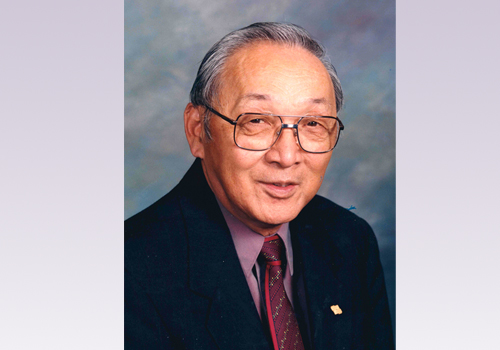By Assunta Ng
Northwest Asian Weekly

Tsuguo “Ike” Ikeda, a pioneer who opened doors to many—especially troubled youths—and broke down barriers for people of color, died on Dec. 2.
Surrounded by his family, Ikeda died peacefully at the age of 91, according to his wife, Sumiko.
Ikeda was the first Asian American executive director of a nonprofit in the United States, according to the National Association of Social Workers (NASW). In 1953, Ikeda was hired as the first professional director of the Atlantic Street Center (ASC), a non-profit social service agency that has now been operating for over 100 years in Seattle. Under Ikeda, ASC focused on services for troubled youths. He served with ASC for 33 years until his retirement in 1986.
“Ike was an amazing person who inspired a whole generation of multicultural individuals to become social workers and community leaders,” said Al Sugiyama, a community leader.
“Ike was always looking at ways to improve the greater community, which inspired him to create the Minority Executive Directors Coalition (MEDC),” said Sugiyama.
Ikeda was credited, during the 40th anniversary of the resettlement of Vietnamese refugees in the Pacific Northwest last spring, for helping to develop the first Vietnamese newspaper in America, the Dot Moi.
Sumiko states her husband followed three important principles in life: Community, church, and family.
“He worked hard and long hours, yet he always made time for his family, his friends and the community,” said Sugiyama.
In 1942, Ikeda, a 17-year-old American of Japanese descent, and his family were ordered to leave his home and went to the Minidoka concentration camp in Idaho where he would spend the next year and a half. He graduated from Hunt High School in the camp in 1943.
After his time in the camp, Ikeda served along with more than 33,000 other Americans of Japanese descent in the U.S. Army until the end of the war. Ikeda and other Nisei (second generation) World War II veterans were awarded a Congressional Gold Medal in 2011.
Sumiko said, “The injustice of being incarcerated in World War II propelled him to going into social work. He was an unusual Nisei in that he was very vocal when he saw any injustice and he did not hesitate to take part in marches and protests. Some in the community referred to us as being ‘different.’ It never bothered him.”
He continued his activism, and once he even got arrested and released and later that night he watched himself on TV handcuffed and being led away, Sumiko said.
Daughter Wanda said, “Despite his incarceration at the age of 17 for being an American of Japanese descent, my dad remained optimistic with an everlasting concern for the welfare of others – especially for those on the periphery of life who often remain ‘invisible’ yet are crucial members of our community.”
His son-in-law Jon Matsumiya said, “I cannot recall a conversation with him without a smile or laughter.”
Another daughter, Julie Oshiro, referred to a quote by Geoffrey Covin in her father’s book, Ike’s Principles, that reflects her father’s philosophy: “Greatness isn’t reserved for a preordained few. It is available to you and everyone.”
Ikeda’s courage
Ikeda was often a pioneer in building multi-racial relations. In the late 1960s, Ikeda allowed the Seattle Black Panthers to use their facilities to provide a breakfast program for local underprivileged children. It was not common in those days to have Asian American and African American collaboration. Despite the controversial decision, Ikeda and the Black Panthers ended up developing a mutually respectful relationship.
“Ike was a visionary and pace setter, always ahead of his time. He loved our communities and worked tirelessly and collaboratively to strengthen them and bring about unity. He was my mentor and will always be the proud father of Atlantic Street Center,” states Edith Elion, Executive Director of the Atlantic Street Center.
Ikeda also organized and facilitated a minority inmate coalition at the Washington State Department of Corrections Monroe Reformatory (now Correctional Complex). The coalition was successful at decreasing incidents of violence between groups of minority inmates and was the first of its kind in the state, according to NASW.
Ikeda’s education included a bachelor of arts degree from Lewis and Clark College in Portland, Oregon. In 1951, he earned his master’s in social work degree; he was one of the first graduates of color from the University of Washington School of Social Work.
Son of Minoru and Tomoe, Ikeda was born on Aug. 15, 1924, in Portland, Oregon. He had two brothers and one sister and grew up in Portland until his incarceration.
Ikeda is survived by his wife, Sumiko Hara, of Hawaii; four daughters; and seven grandchildren. Ikeda and Sumiko were married for 64 years. (end)
A celebration of Ikeda’s life will be held at Blaine Memorial United Methodist Church on Jan. 18, 2016, at 11 a.m.
Assunta Ng can be reached at assunta@nwasianweekly.com.



